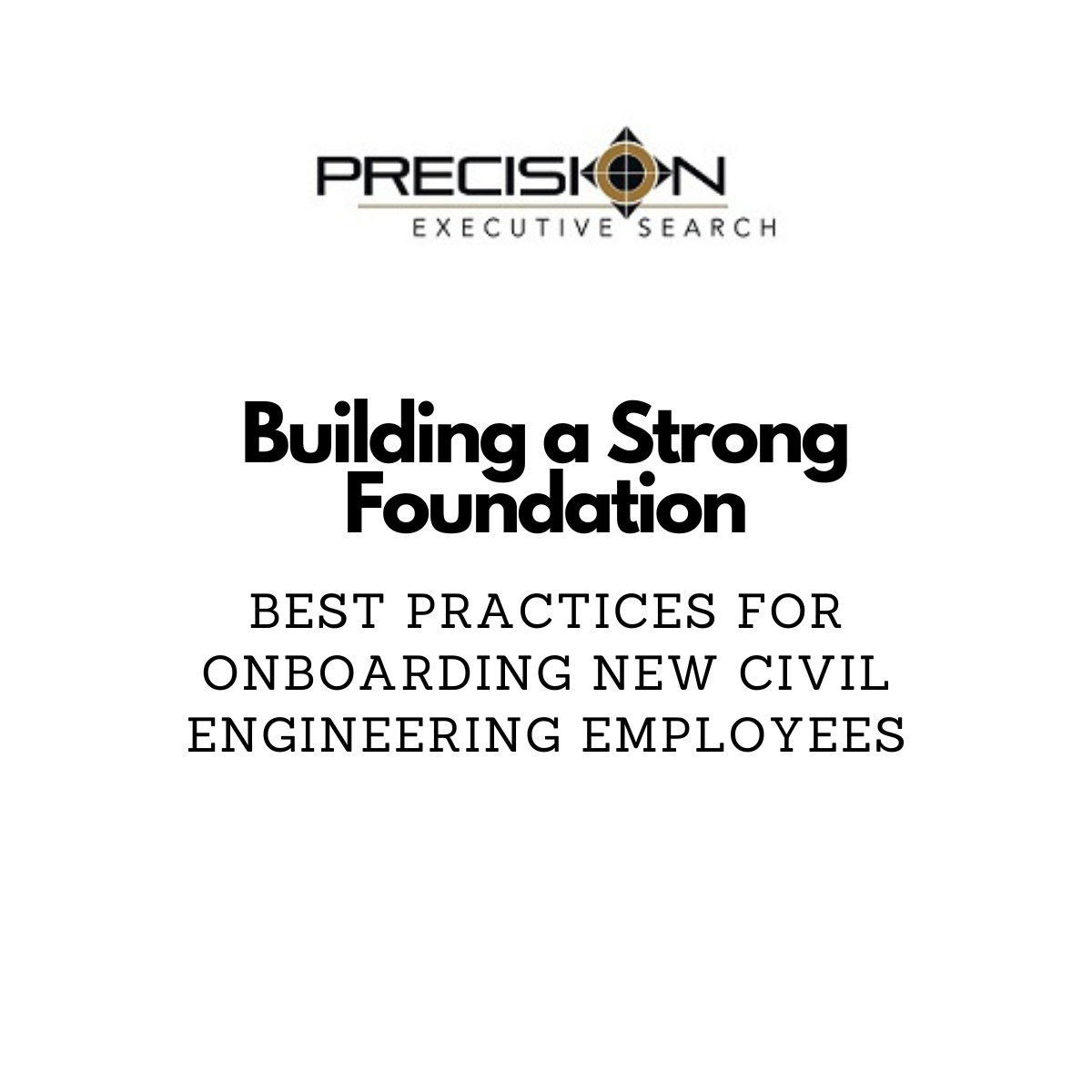
02 May Building a Strong Foundation: Best Practices For Onboarding New Civil Engineering Employees
Effective onboarding is crucial in setting up new hires for success and ensuring they integrate seamlessly into your firm’s culture and operations.
Best Practices:
- Pre-boarding Communication: Reach out to new hires before their start date with welcome messages and necessary information. Providing details about first-day expectations, dress codes for site visits, or required safety gear can alleviate first-day anxieties.
- Structured Orientation: Provide a comprehensive overview of company policies, procedures, and expectations. Including sessions on project management software, CAD tools, or field data collection methods ensures that new employees are equipped with the necessary technical skills.
- Assign a Mentor: Pair new employees with experienced team members to guide them through their initial days. This mentorship can be particularly beneficial in understanding project workflows, client interactions, and navigating regulatory requirements.
- Regular Check-ins: Schedule periodic meetings to address any questions or concerns and provide feedback. These check-ins can also serve as opportunities to discuss career development goals and align them with firm objectives.
- Continuous Learning: Offer training sessions and resources to encourage professional development. This could include workshops on the latest engineering software, seminars on emerging industry trends, or support for obtaining professional licensure.
Civil Engineering-Specific Enhancements:
- Site Safety Training: Incorporate comprehensive safety training tailored to the types of projects your firm undertakes, ensuring that new hires are aware of protocols and best practices from the outset.
- Regulatory Compliance Education: Educate new employees on local, state, and federal regulations pertinent to your projects, such as environmental impact assessments or zoning laws, to ensure compliance and informed decision-making, especially for those who may have recently relocated to the area.
- Technical Skill Assessments: Evaluate new hires’ proficiency in essential tools and software, such as AutoCAD, Civil 3D, or GIS platforms, to identify areas for targeted training and development.
Implementing these practices can lead to higher employee satisfaction, reduced turnover, and a more cohesive team, ultimately contributing to the successful execution of your civil engineering projects.


No Comments